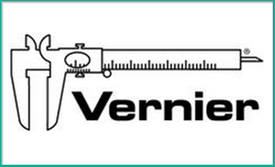
To begin the data-collection process, students launch the app on an Android device and then connect one of over 45 supported Vernier sensors to wirelessly stream and record data, such as temperature, pressure, pH, heart rate, and more. With Science Journal, students can organize their ideas into projects, make predictions, collect data in multiple trials, take notes, upload images from the experiment, and annotate results.
Science Journal, which is free to download in the Google Play store, requires Android 4.4 or newer. Available as a free download, the Vernier Graphical Analysis™ app 3.1.1 or newer must be installed in addition to Science Journal.
To learn more, visit www.vernier.com/science-journal.
About Vernier Software & Technology
Vernier Software & Technology has led the innovation of scientific data-collection technology for 36 years. Vernier was founded by a former physics teacher and hires educators at all levels of the organization. The company is committed to teachers and to developing creative ways to teach and learn science, technology, engineering, and mathematics (STEM) using hands-on science. Vernier creates easy-to-use and affordable science interfaces, sensors, and graphing/analysis software. With worldwide distribution to over 140 countries, Vernier data loggers are used by educators and students from elementary school to university. Vernier technology-based solutions enhance STEM education, increase learning, build students' critical thinking skills, and support the science and engineering practices detailed in the Next Generation Science Standards (NGSS). The Vernier business culture is grounded in Earth-friendly policies and practices, and the company provides a family-friendly workplace. For more information, visit http://www.vernier.com.












